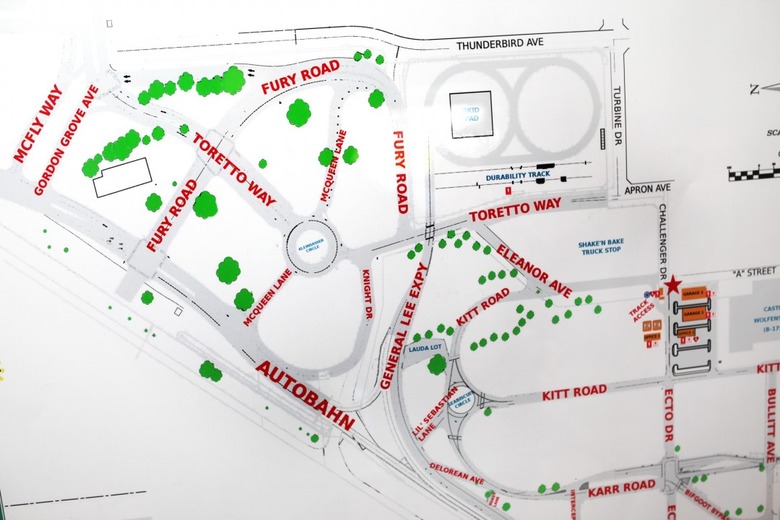Turns Out, Testing Autonomous Cars Is A Headache
What does it take to be the test-driver for a self-driving car? Turns out, a lot more than you might expect. Though it may seem like a contradiction in terms, helping tutor autonomous vehicles for their eventual mass-market deployment isn't just a case of sitting back and letting the computer watch the road.
Backchannel's Steven Levy found that out first hand in a trip to Google's autonomous car testing center in Atwater, California. Dubbed "Castle", the facility is 100 acres filled with replicas of city streets, urban sprawl, and stretches of highway – with names like KITT Road, Bullitt Ave, and McFly Way – along with the prop cupboard to dress them.
Often, that prop cupboard is augmented with professional pedestrians who step out in front of autonomous vehicles to present and test new types of hazard.

Usually, training to become a qualified Google self-driving car tester takes four weeks, though the company gave Levy a compressed version. That didn't leave him eligible to test one of the pod-like prototypes, however: their manual controls are less car-like than those in the retrofitted Lexus SUVs Google is also using.
As Levy points out, it's not only stressful for those stepping out into the modeled streets, but for those in the driver's seat, hands and feet poised to wrest back control.
As Google has alluded to in the past, it can be small issues which still present a challenge to autonomy. Blowing leaves, for instance, are something the systems are only just getting to grips with – the cameras can see them as sudden obstacles that would normally require braking – and dealing with aggressive driving from human-piloted cars can leave the computers too timid.
What's particularly interesting, though, is the disparity between how road-ready Levy ends up considering the cars to be, and how confident Google is in that same factor.
"We're maybe 95 percent there," Levy writes, having observed that he had previously drunk the Kool-Aid from Elon Musk, Sergey Brin, and others about just how proficient the technologies are, "but that last 5 percent will be a lengthy slog."
That would seem to be a pretty sensible prediction, given Google's recent disclosure of self-driving car incidents.
NOW READ: You're overestimating Google's cars
In contrast, Google's project leader Chris Urmson repeats his prediction that the cars will be road-ready in about four years – just in time, in fact, for when his son turns sixteen.
Before then, manufacturers will have to figure out how to deliver the high-resolution mapping data the cars require in order to safely navigate – and which currently keeps Google's vehicles trapped, in autonomous mode at least, in a relatively small area.
SOURCE Backchannel
